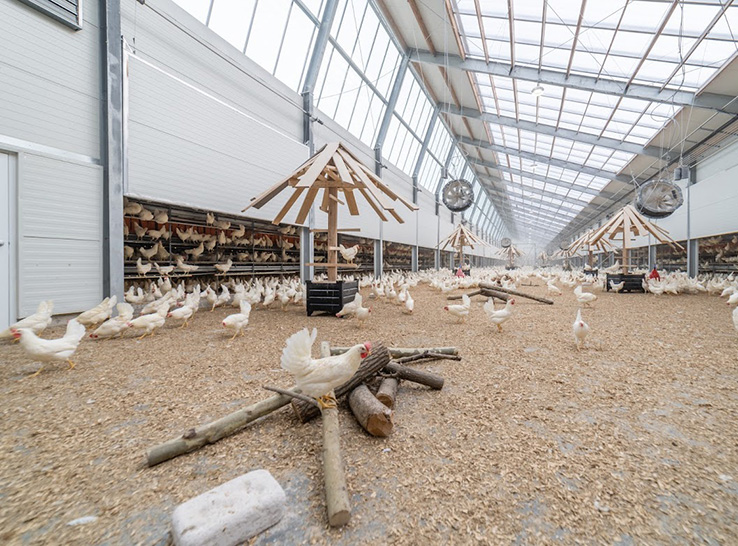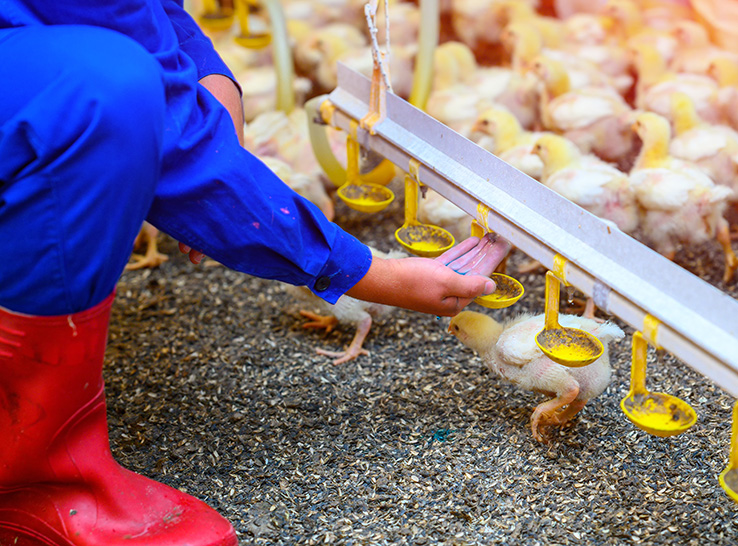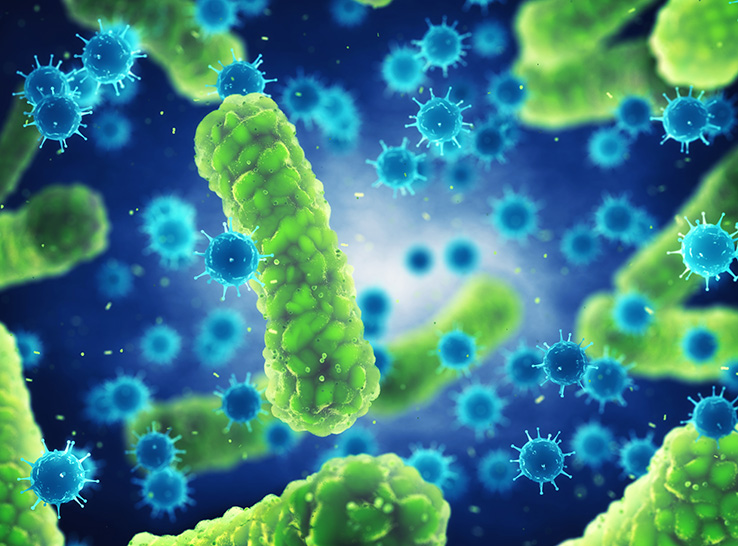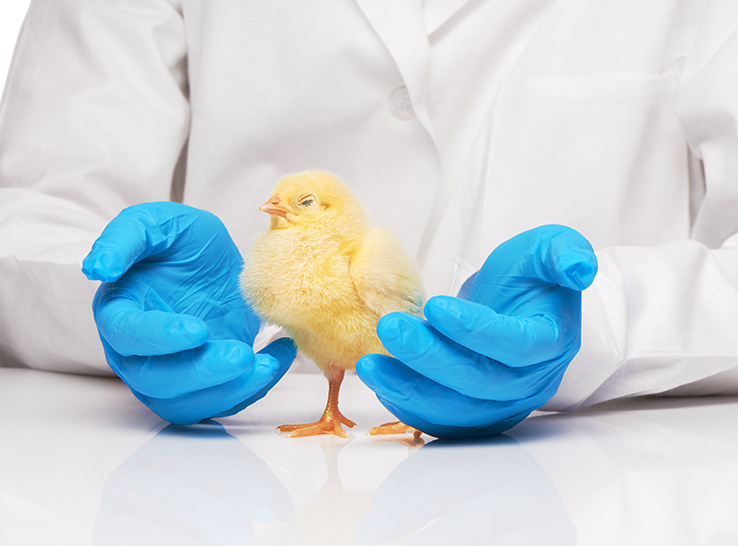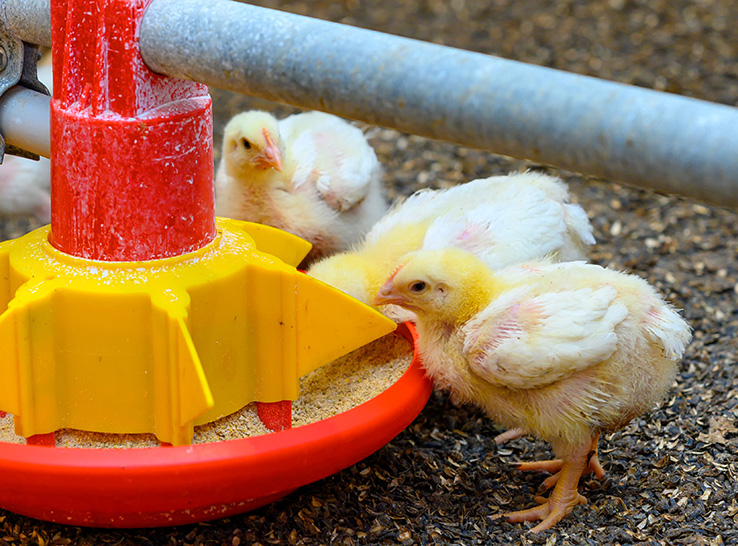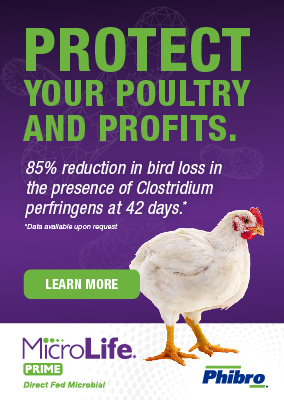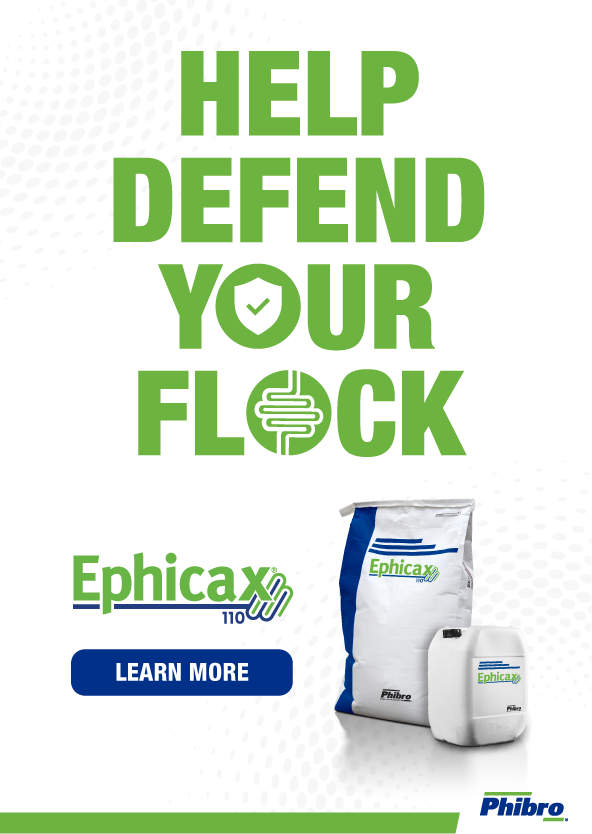Using a dietary supplement containing a blend of Bacillus bacterial strains appears to positively affect the intestinal health and immunity of broiler chicks after a coccidia challenge, according to a Frontiers in Microbiology report.1
Scientists at Phibro Animal Health tested Microlife® Prime, a direct-fed mix of four Bacillus strains, in a challenge study using a mix of Eimeria parasites, which cause the costly poultry disease coccidiosis.
Study details
Previous work looking at direct-fed microbials and coccidiosis had generally looked at only the peak infective phase of Eimeria challenges, explained Kevin Bolek, PhD, microbial innovation director for Phibro.
The study design aimed to shed new light on the impact of the intervention during both peak (0 to 6 days post-infection) and recovery (6 to 13 days post-infection) phases.
The researchers randomly and equally divided 120 Ross 708 broiler chicks on corn-soy diets into three randomized treatment groups:
- Unchallenged
- Challenged without any feed interventions
- Challenged and fed the microbial supplement.
The challenged birds were fed their respective diets for 7 days before the challenge. The challenge was an oral gavage of a live coccidia vaccine when the birds were 11 days old, administered at three times the recommended amount to ensure a sufficient challenge.
At 6 days post-infection, the scientists randomly euthanized two birds per cage to assess coccidia-induced lesions and sampled droppings for oocyst counts. The team also recorded birds’ weights and feed intake at days 0, 6 and 13 days post-infection.
To measure gastrointestinal permeability, they administered fluorescein isothiocyanate dextran (FITC-d) to the birds at 0, 6, 9 and 13 days post-infection, collecting plasma and mid-jejunum tissues 2 hours later. FITC-d is a fluorescent probe that can be used to evaluate intestinal leakage.
Multiple positive impacts
During the peak phase, compared to unchallenged birds and challenged birds fed the Microlife Prime supplement, challenged birds with no feed supplement had significantly reduced bodyweight gain and an increased feed-conversion ratio (FCR). Weight gain and FCR were similar between challenged birds fed the supplement and unchallenged birds.
The significantly higher weight gain observed in the challenged birds fed the supplement compared to those not fed the supplement showed that Microlife Prime alleviated the typical negative effect on bodyweight of parasitic infection seen in poultry, whereby nutrient resources are shifted from growth to immune response, Bolek explained.
Lesion scores and oocyst shedding were significantly lower for the birds fed the supplement than the challenged group fed the corn-soy diet.
Regarding intestinal permeability metrics, challenged birds fed the supplement demonstrated reduced plasma FITC-d, a marker of gut integrity, with the most severe gut permeability occurring 6 days post-challenge for all the treatment groups. Levels of pro-inflammatory cytokines (IL-10 and IFN-g mRNA) in the jejunum were also lower in these birds than those not fed the supplement post-coccidia challenge.
“Coccidiosis causes millions of dollars of economic losses every year, and there is increasing demand for alternative options to improve performance and disease resistance, especially in systems using no or reduced antibiotics. There has been a great focus on direct-fed microbials, as many studies have linked them to improved gut health,” Bolek said.
“This work showed that including the supplement restored gut permeability and provided added protection during coccidia infection without affecting gut function. We were pleased to see reductions in gut damage and parasite fecundity. Overall, Microlife Prime appears to be a promising alternative to antibiotics in managing coccidiosis,” Bolek concluded.
For the full study report, click here.
Editor’s note: Content on Modern Poultry’s Industry Insights pages is provided and/or commissioned by our sponsors, who assume full responsibility for its accuracy and compliance.
1 Osho S, Bolek K, Saddoris-Clemons K, Humphrey B, Garcia M. Impact of a direct-fed microbial supplementation on intestinal permeability and immune response in broiler chickens during a coccidia challenge. Front Microbiol. 2023 Oct 31;14:1283393.

